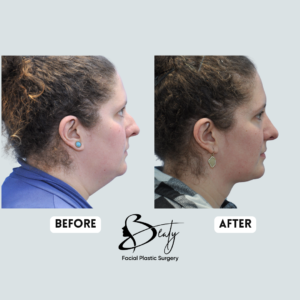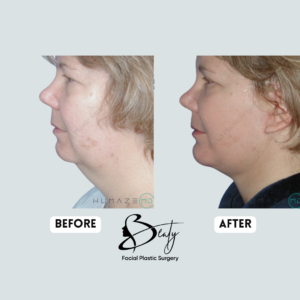Can I Have a Facelift If I Am Still Actively Losing Weight?
Absolutely. With the evolution of facelift and neck lift techniques over the past few decades, we now understand that a carefully performed facelift can produce excellent, long-lasting results even while you are still in the process of losing weight. Being within about 25 pounds of your goal weight is often ideal, but many patients can undergo surgery earlier and still achieve beautiful, natural outcomes.
Why Modern Techniques Make This Possible
The key reason timing is less restrictive today is the focus on support structures beneath the skin. Unlike earlier approaches that only peeled and pulled skin taut, current advanced methods—such as the deep-plane facelift—involve elevating and repositioning the face’s underlying tissues, including the SMAS layer and even deep muscular structures. This foundational work creates a more natural and durable lift, less vulnerable to future weight fluctuations.
Because these techniques tighten and restore the support of the face and neck—not just skin—your results are more resilient over time. This means that even if you’re still losing weight, your facelift can effectively rejuvenate your appearance without being undone by future changes.
Addressing Volume Changes and Modern Considerations
Recent journeys with GLP-1 agonists like Ozempic have introduced new challenges, such as “Ozempic face”—a hollowing or sagging appearance resulting from fat loss. Modern procedures can also incorporate fat grafting, helping replace lost volume in key areas like the cheeks and temples, which restores youthful fullness and complements the lift.
The Bottom Line
Today, a face and/ or neck lift can often make you look 20 pounds lighter, providing a rejuvenated, balanced appearance. With the right surgical techniques, you don’t need to wait until your weight is fully stable to benefit from facial rejuvenation.









